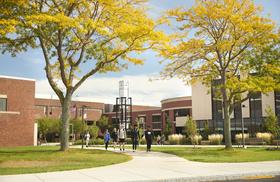Community colleges have seen a significant rise in enrollment since the economic slowdown began, due in part to the need for retraining into careers that are more lucrative and recession-proof. As waiting lists for community colleges across the country continue to grow, some students are turning to vocational, for-profit colleges to meet their academic needs in the interim. Unfortunately, certain rather unscrupulous practices by these for-profit institutions have resulted in federal regulations that will negatively affect the community college environment as well.
What is the Gainful Employment Rule?
While community colleges offer associate's degrees in a wide range of subjects, they also provide specific job training in particular fields that takes less time to complete. For-profit institutions also offer these training programs to help students get through school and into the workforce as quickly as possible. Unfortunately, some of these training programs do not offer the necessary preparation in fields that are demanding new hires, leaving students without gainful employment and additional debt from their schooling that they cannot pay.
To address this concern, the Federal Department of Education has put forth a rule known as the Gainful Employment Rule. This regulation will discourage career colleges from providing misleading information about the employment prospects students can expect after completing their training. The rule targets predatory career colleges that purposely provide inaccurate industry information and encourage students to take out loans for career training that has little chance of producing a lucrative job – and the means to pay off the loan – afterward, according to the North Bay Business Journal.
This video explains the Department of Education's Gainful Employment regulation.
How Does it Work?
The Gainful Employment Rule will target programs that send students into the job market without adequate pay to cover the cost of their student loans. According to a report in the Minnesota Post, colleges would be required to make detailed reports that provide information to help regulators calculate a student debt-to-income ratio. Using these figures, the federal government could make programs with poor loan repayment rates ineligible for financial aid. This could keep many students from pursuing training in those areas, with the hope that they would turn to training programs with better prospects after completion.
The General Accountability Office recently released a report that showed for-profit colleges often use deceptive practices to lure students into particular training programs. They have also allowed students to accumulate significant amounts of debt that they would not be equipped to pay back in a timely fashion. At the same time, the Department of Education provided data that further verifies the claims. This agency showed that the loan repayment rate for public colleges was 54%, while non-profit private colleges were 56%, but for for-profit schools, it was just 36%.
Lean more about what the Gainful Employment Rule means in this video.
Will it Work?
While the general theory behind the Gainful Employment Rule sounds good, the impact of the regulation is being felt by other schools as well, specifically community colleges. According to the Minnesota Post story, nearly 10% of programs at community colleges will also have to comply with the new rule. David Baime, senior vice president for government relations and research at the American Association of Community Colleges told the Post, "We feel the potential impact on us has been under-reported."
Career colleges also believe the rule will negatively impact students looking for training to advance their career paths. A report at the Huffington Post explains that career colleges offer an option for students who cannot get into overcrowded community colleges for the courses they want. Now, these same students may not be able to pursue the training of their choice because they will not be able to receive the financial aid necessary to pay for the training. This could limit access for millions of college students who need the assistance most because they fall into the low-income or minority categories.
Schools may also become overwhelmed with the reporting requirements that accompany the rule. Colleges will now be required to provide the government with students' social security numbers and information on any private loans they have taken out. The Department of Education will then match this information with students' incomes, as reported by the IRS for the current taxable year. If the ratio falls below a particular percentage, financial aid could be pulled or reduced for that program.
While it makes sense to protect students from the unscrupulous practices that some career colleges subscribe to, a rule as sweeping as the Gainful Employment Rule may have a more negative impact than originally intended. Students need to have access to job training if they are to obtain a lucrative job after college. By limiting their choices, the government may be limiting the future workforce overall.
Questions? Contact us on Facebook. @communitycollegereview















